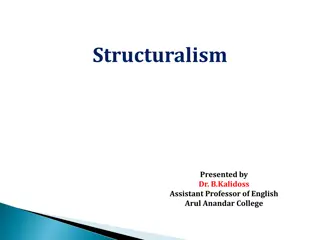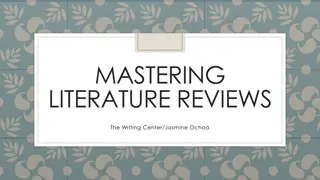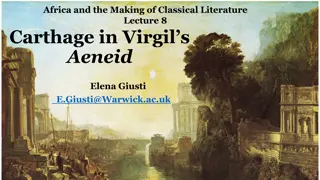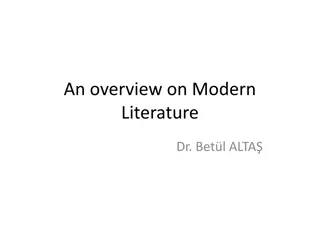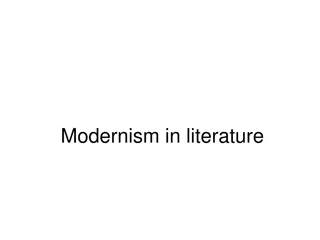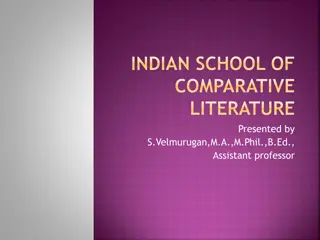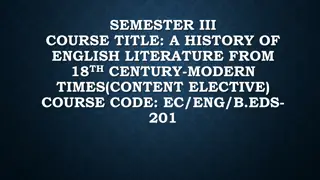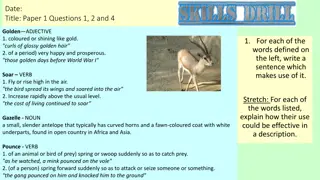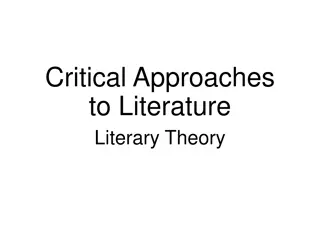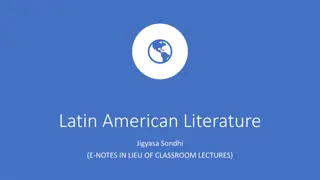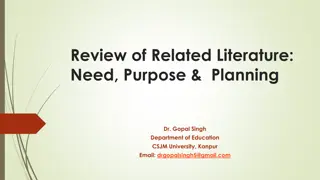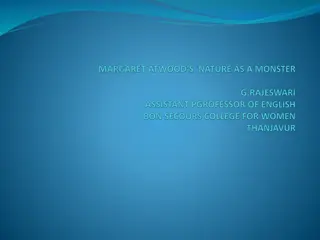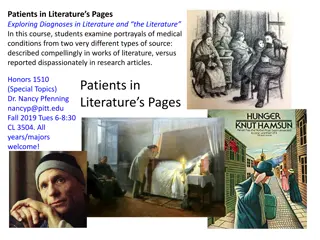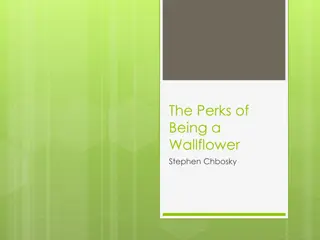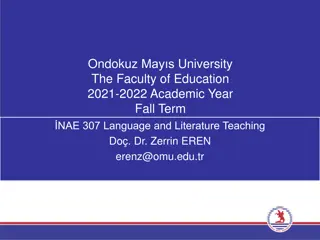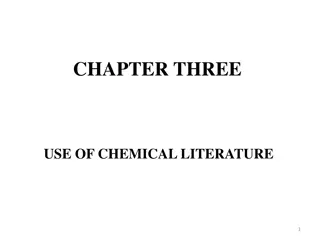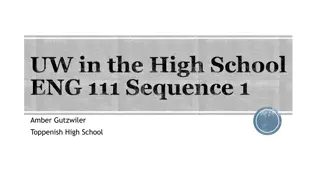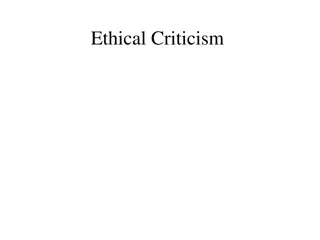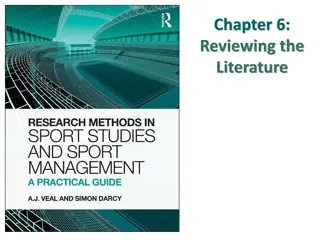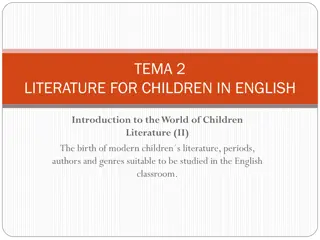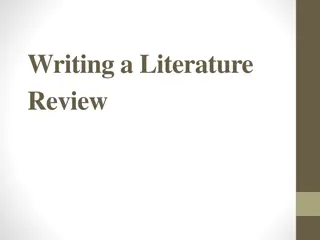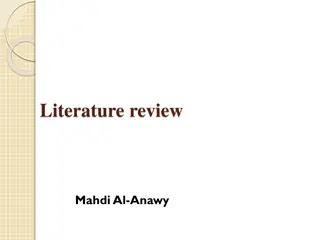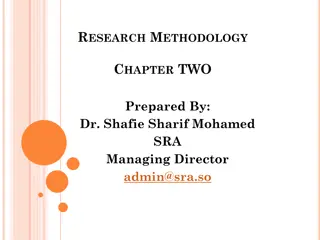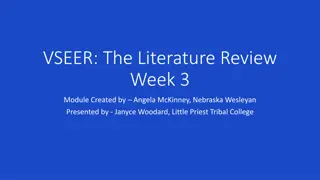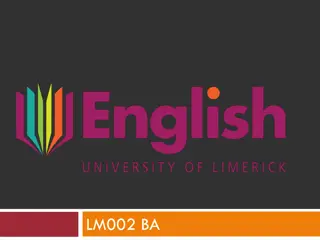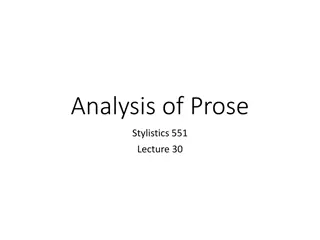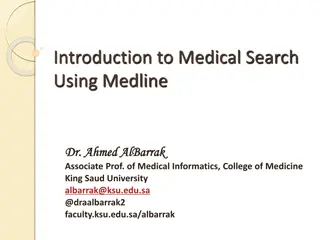Importance of literature review
A literature review is a critical component of any research endeavor, providing a comprehensive analysis of existing knowledge in a particular field. This review helps in clarifying conceptual issues, understanding research design, persuading examiners, and contributing new insights to the subject a
0 views • 28 slides
[PDF⚡READ❤ONLINE] In Ruins: A Journey Through History, Art, and Literature
\"COPY LINK HERE ; https:\/\/getpdf.readbooks.link\/1400030862\n\n[PDF READ ONLINE] In Ruins: A Journey Through History, Art, and Literature | In Ruins: A Journey Through History, Art, and Literature\n\"\n
1 views • 6 slides
Obscenity, Literature & Law
Delve into the interplay between obscenity, literature, and law, tracing the history of censorship in English law, landmark cases like the Lady Chatterley Trial, and the contemporary landscape of obscenity in legal frameworks. Discover the nuances of freedom of expression, diverse authorship in lite
0 views • 25 slides
LITERATURE REVIEW
Reviewing literature is a crucial aspect of research projects, allowing for a theoretical foundation and connection to practical applications. Steps involved include sourcing, careful reading, note-taking, theme identification, drafting, and revising. Discussions with colleagues can enhance the unde
2 views • 13 slides
Understanding Structuralism in Literature: Key Concepts and Evolution
Structuralism, as presented by Dr. B. Kalidoss, explores the order and arrangement in various forms like language and literature. It delves into the interrelationship between units and rules, proposing a deeper understanding of texts through linguistic analysis. The evolution of structuralism in lit
0 views • 17 slides
Mastering Literature Reviews: A Comprehensive Guide for Writing Success
A literature review is a critical discussion of relevant information on a specific topic, involving problem definition, interpretation, and identification of research gaps. It is not a mere collection of sources but a synthesis that guides further investigation. Incorporating APA style tips, this gu
1 views • 15 slides
Carthage: A Heterotopic Space in Classical Literature
Carthage, as depicted in Virgil's Aeneid and through artworks by Claude le Lorrain and J.M.W. Turner, is examined as a heterotopic space in classical literature. The concept of imagined geographies and heterotopias is explored in relation to Carthage, highlighting how it was represented, contested,
0 views • 31 slides
Evolution of Modern Literature in the 20th Century
The Modern Age in literature emerged in response to the Victorian era, marked by a shift in attitudes towards life and society. Influenced by historical, economic, and ideological factors such as World Wars, capitalism, and the disintegration of empires, Modern Literature explored new themes and sty
1 views • 14 slides
Exploring Modernism in Literature and Beyond
Modernism in literature emerged as a groundbreaking international movement in the early 20th century, challenging traditional norms and exploring new forms of expression. This movement, characterized by experimentation and a rejection of absolute knowledge, extended beyond literature into various fi
1 views • 17 slides
Insights into the Indian School of Comparative Literature: A Comprehensive Overview
The Indian School of Comparative Literature, pioneered by Dr. Buddhadeva Bose in 1956 at Jadavpur University, plays a crucial role in studying the diverse languages and rich literary traditions of India. This academic discipline has grown significantly, with a focus on French symbolist poetry's infl
2 views • 14 slides
Effective Strategies for Literature Searches and Re-Use of Scholarly Literature
Conducting literature searches involves surveying existing publications and information on a specific topic. Different search strategies, from simple searches to systematic queries and snowballing, are utilized based on research needs. Learning objectives include building search strategies, using ad
3 views • 19 slides
Introduction to Isixhosa Language and Literature - Exploring Characters and Themes
This content provides an overview of Isixhosa as a first additional language (FAL) and delves into key aspects of literature such as character development and themes. It discusses the importance of characters in storytelling, emphasizing the significance of round and flat characters. The article als
3 views • 28 slides
Exploring English Literature from the 18th Century to Modern Times
This course focuses on major literary movements from the 18th century to modern times, examining the history of modern literature and exploring overlapping trends and traditions. Students will critically analyze historical texts, write organized critical essays, understand word structures, and grasp
1 views • 9 slides
Language Analysis in Literature Exam Papers
In this content, the use of language in exam papers for literature analysis is discussed. Definitions and examples of words like "golden," "soar," "stretch," "gazelle," and "pounce" are provided. The focus is on understanding language techniques, common mistakes in language analysis questions, and p
2 views • 10 slides
Critical Approaches to Literature and Literary Theory
Explore different critical approaches to studying literature, including Reader-Response Criticism, Formalist Criticism, Psychological/Psychoanalytic Criticism, Sociological Criticism, and more. Dive into questions of how we read, interpret, and perceive meaning in texts, considering the impact of vi
1 views • 20 slides
Exploring Latin American Literature through History and Magic Realism
Latin American Literature encompasses a rich tapestry of national literatures from South and Central America, Mexico, Cuba, Puerto Rico, and parts of the West Indies. With roots in European traditions and indigenous cultures, this literary landscape is intricately tied to the continent's history and
0 views • 16 slides
Understanding Literature Reviews: Process, Purpose, and Types
A literature review is an essential part of academic research, providing a synthesis of existing studies on a topic. It involves reviewing published information within a specific subject area to help the reader understand the research background. The process of conducting a literature review is meti
0 views • 70 slides
Nature as a Monster in Canadian Literature
Margaret Atwood, a renowned Canadian author, explores the theme of nature as a monster in Canadian literature. The prose delves into the changing perceptions of nature by poets over the centuries, from a kind mother figure to a hostile force. The discussion includes the different types of death port
1 views • 9 slides
Comprehensive Literature Review Guidelines for Your Dissertation
Discover expert guidelines for conducting a thorough literature review in your dissertation. Explore topics such as literature search strategies, theoretical frameworks, review of the literature, synthesis, and analysis, with actionable tips provided throughout.
0 views • 11 slides
Exploring the Significance of Persian Language and Literature in Indian History
Persian language and literature hold a crucial place in Indian history, serving as a prime source for understanding the medieval period. Scholars in India have dedicated their lives to preserving and promoting Persian history, language, and literature. The rich cultural heritage of India, dating bac
0 views • 9 slides
Mastering the Literature Review Process
Understanding the significance of literature review, this guide emphasizes the essential steps involved in conducting a successful literature review - from planning and research problem identification to critical analysis and contribution to existing literature. It explains the importance of develop
0 views • 16 slides
Effective Strategies for Conducting Business Research Literature Review
This literature review provides insights into conducting business research effectively, covering topics such as how to search, read, and write literature reviews, along with the goals and types of literature. It emphasizes the importance of generating research ideas, demonstrating knowledge, and int
1 views • 13 slides
Exploring Diagnoses in Literature and the Literature
This course delves into portrayals of medical conditions in literature versus research articles. It explores the intersection of science and literature, analyzing works like "Black Swan Green" and "The Reason I Jump" to understand how they depict conditions like stuttering and autism. Through studen
1 views • 28 slides
Evolving Perspectives on Literature and Translation
Explore the intertwined relationship between national literature, comparative literature, and world literature, delving into the evolution of translation studies. Reflect on the shift from national literary histories to world histories of literature, highlighting the significance of world literature
3 views • 54 slides
Literature Unit Project Overview
This literature unit based on "The Perks of Being a Wallflower" by Stephen Chbosky involves various assignments such as creating a mixed-tape playlist, personal journals, character analysis, participation in literature circles, and more. Students will engage in a mix of creative and analytical tasks
0 views • 26 slides
English Literature Course: Analysis of Novels and Short Stories
Explore the world of English literature through an in-depth study of novels and short stories in this course outline for the 2021-2022 academic year at Ondokuz Mayıs University. Delve into the development of the novel in England, from the 18th century to modernism, and analyze key works by renowned
1 views • 4 slides
Understanding the Importance of Chemical Literature in Research
Reviewing chemical literature is essential in the research process to identify existing knowledge, develop hypotheses, plan methodologies, and discover unanswered questions. The vast and complex nature of chemical literature poses challenges in finding relevant information, especially with evolving
0 views • 22 slides
Gothic Literature Analysis and Exploration in ENG 111 Sequence
Dive into a captivating journey through Gothic Literature with in-depth analyses on works by H.P. Lovecraft, exploration of Vampire Literature, and literary examinations of classics like Dracula and Frankenstein. Uncover rhetorical strategies, thematic elements, and enduring impacts in this ENG 111
0 views • 5 slides
Exploring Ethical Criticism and Literature's Human Possibilities
Ethical criticism in literary studies revolves around the intersection of ethics, literature, and criticism. It tackles concerns about the relationship between value judgments, ethics, and aesthetics, emphasizing the importance of reconnecting criticism with moral principles. Literature offers a dee
0 views • 21 slides
Understanding the Importance of Literature Review in Research
Exploring the roles of literature in research, this content emphasizes the significance of reviewing existing literature to gather ideas, compare methodologies, and integrate supportive information. It also highlights the types of reviews and essential questions to consider during the literature rev
0 views • 12 slides
The Status of Literature in Secondary Schools of the O.E.C.S. - Research Findings by Dr. Anthony Felicien
Research by Dr. Anthony Felicien examines the status of literature in secondary schools of the O.E.C.S., focusing on the decline of interest in literature among students, influenced by historical curriculum changes and parental attitudes. The study highlights the importance of studying literature fo
0 views • 35 slides
Evolution of Children's Literature in English: From Alice to Modern Times
Explore the birth of modern children's literature starting with the publication of "Alice's Adventures in Wonderland" in 1865 by Charles Dodgson (Lewis Carrol), marking a shift towards entertaining and engaging literature specifically for children. Prior to this, children mainly read folklore and ad
0 views • 35 slides
Mastering the Art of Writing Literature Reviews
Understanding the essence of a literature review, its descriptive and analytical components, selecting key articles, and finding relevant sources are essential steps in crafting a comprehensive literature review. By integrating ideas from various sources and highlighting crucial findings, a literatu
0 views • 18 slides
Comprehensive Guide to Literature Review Process
A literature review is essential before conducting research to identify existing information, gaps in literature, major works, and relationships between studies and theories. Follow steps such as defining the topic, sourcing information, discussing findings, and drafting to write an effective litera
0 views • 8 slides
Effective Strategies for Conducting a Literature Review in Research Methodology
Understanding the importance of literature review in research methodology, this chapter discusses the objectives, aims, and guidelines for writing a comprehensive literature review. It emphasizes the significance of identifying gaps in existing knowledge, structuring the review, and organizing infor
0 views • 33 slides
Understanding the Importance of Literature Reviews in Research
A literature review is crucial in research to establish context, survey existing literature, explore solutions to research questions, evaluate quality and relevance, identify gaps, and demonstrate scholarly rigor. It provides a critical analysis of previous research, highlighting both strengths and
0 views • 14 slides
GCSE English Language and Literature Overview
GCSE English Language and Literature subjects are led by Mrs. A. Baker and Mr. Doodson. English Language is examined by OCR, while English Literature is examined by Edexcel. Both subjects have two examination papers worth 100% of the grade. English Language papers focus on reading and writing skills
0 views • 14 slides
Study English Programme at UL: Literature, Analysis, and Context
The English program at UL fosters critical and analytical skills through literature appreciation and exploration of social, cultural, and historical contexts. Students delve into literary analysis from the 16th century to modern times, with elective choices for personal interests. The curriculum cov
0 views • 5 slides
Understanding Stylistic Analysis in Literature
Stylistic analysis in literature involves examining linguistic features like lexis, grammar, foregrounded elements, and context to distinguish between literary and non-literary prose. While poetry allows for whole text analysis due to its brevity, prose analysis often focuses on selected extracts fo
0 views • 16 slides
Effective Medical Literature Search Techniques by Dr. Ahmed AlBarrak
Dr. Ahmed AlBarrak, an Associate Prof. of Medical Informatics at King Saud University, provides valuable insights on medical literature search using resources like Medline. The content covers objectives of literature search, methods to find relevant literature, advantages of electronic journals, and
0 views • 39 slides
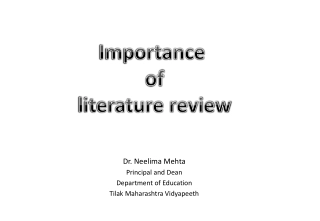
![[PDF⚡READ❤ONLINE] In Ruins: A Journey Through History, Art, and Literature](/thumb/20543/pdf-read-online-in-ruins-a-journey-through-history-art-and-literature.jpg)


